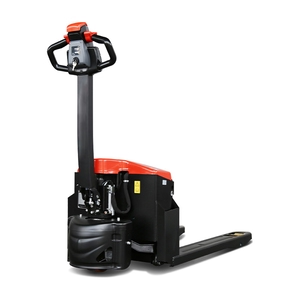How Electric Forklifts Improve Warehouse Efficiency: Case Studies
Electric forklifts are revolutionizing the way warehouses operate by improving efficiency and productivity. Let’s take a look at some real-world case studies to see how electric forklifts have made a significant impact on warehouse operations.
Company A: Large E-commerce Retailer
Company A, a large e-commerce retailer, was struggling with high operating costs and inefficiencies in their warehouse. They decided to switch from gas-powered forklifts to electric forklifts to reduce their carbon footprint and operating costs. The results were remarkable – the electric forklifts proved to be more energy-efficient, requiring less maintenance and reducing overall operational costs. With the quiet operation of electric forklifts, the noise level in the warehouse also decreased, creating a more comfortable working environment for employees. Company A saw a significant improvement in their warehouse efficiency and was able to process orders faster, leading to increased customer satisfaction.
Company B: Food Distribution Company
Company B, a food distribution company, was facing challenges with their gas-powered forklifts, as they were emitting harmful emissions in their warehouse. To address this issue, they made the switch to electric forklifts. The electric forklifts not only reduced emissions but also improved air quality in the warehouse, creating a healthier environment for employees. Company B also saw a decrease in operational costs as the electric forklifts had lower maintenance requirements and reduced fuel costs. With the improved efficiency of electric forklifts, Company B was able to streamline their warehouse operations and increase their overall productivity.
Company C: Manufacturing Company
Company C, a manufacturing company, was struggling with increased downtime due to frequent repairs needed for their gas-powered forklifts. They decided to invest in electric forklift to reduce maintenance costs and improve operational efficiency. The decision proved to be a wise one, as the electric forklifts had significantly lower maintenance requirements compared to their gas-powered counterparts. Company C saw a decrease in downtime and an increase in productivity as a result. The electric forklifts also provided better control and precision during lifting operations, leading to a more efficient warehouse operation overall.
Conclusion
These case studies demonstrate the significant impact that electric forklifts can have on warehouse operations. By switching to electric forklifts, companies can reduce operating costs, improve air quality, and create a more efficient and productive working environment. If you’re looking to improve the efficiency of your warehouse operations, consider making the switch to electric forklifts. The benefits are clear, and the results speak for themselves.